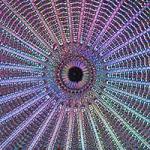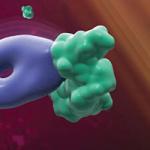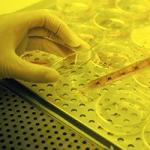
Sergey Michael Bezrukov, D.Sc.,Ph.D.
Senior Investigator
Section on Molecular Transport
NICHD/DIR
Research Topics
Biophysics of Large Membrane Channels
We study mitochondrial and bacterial membrane proteins that form “large” beta-barrel channels responsible for metabolite fluxes between cells and cellular compartments. In particular, we are interested in the physical mechanisms of their functioning and regulation under normal and pathological conditions. Among many wet-lab approaches such as fluorescence correlation spectroscopy, bilayer overtone analysis, and confocal microscopy, our hallmark method is reconstitution of these proteins into planar lipid membranes in order to study them at the single-molecule level. Obtained findings pave the way towards rational design of new strategies and pharmacological approaches to effectively correct the deviant molecular interactions associated with pathology in disease and development.
Biography
Dr. Sergey Michael Bezrukov received his M.S. in physics from St. Petersburg Polytechnic University, Russia, his Ph.D. in biophysics from Moscow State University, and a D.Sci. in physics and mathematics from the Russian Academy of Sciences. He started his career as a researcher at the St. Petersburg Nuclear Physics Institute in Russia. He moved to the United States in 1990, first as a visiting research professor at the University of Maryland. In 1992, he joined the National Institutes of Health as a visiting scientist. He was awarded tenure by NIH in 2002. Dr. Bezrukov has authored numerous scientific papers, with five of them published in Nature (London). He has organized and chaired many international meetings and workshops. Dr. Bezrukov’s honors include election to Fellowship in the American Physical Society (2009) and the NIH Director’s Award in Science and Medicine (2010). Dr. Bezrukov is the Chief of the Section on Molecular Transport, DIR NICHD/NIH, a position he has held since October 2002. Currently, he is also the director of the Division of Basic and Translational Biophysics, DIR, NICHD. Dr. Bezrukov’s section combines physical theory with experiments on bacterial, mitochondrial, and toxin-induced membrane channels reconstituted in planar lipid bilayers to address fundamental membrane transport questions. This line of research serves as the basis for developing new approaches to treating diseases where transport regulation through ion channels plays a key role.
Selected Publications
- Nestorovich EM, Bezrukov SM. Designing inhibitors of anthrax toxin. Expert Opin Drug Discov. 2014;9(3):299-318.
- Rostovtseva TK, Gurnev PA, Protchenko O, Hoogerheide DP, Yap TL, Philpott CC, Lee JC, Bezrukov SM. α-Synuclein Shows High Affinity Interaction with Voltage-dependent Anion Channel, Suggesting Mechanisms of Mitochondrial Regulation and Toxicity in Parkinson Disease. J Biol Chem. 2015;290(30):18467-77.
- Gurnev PA, Roark TC, Petrache HI, Sodt AJ, Bezrukov SM. Cation-Selective Channel Regulated by Anions According to Their Hofmeister Ranking. Angew Chem Int Ed Engl. 2017;56(13):3506-3509.
- Hoogerheide DP, Noskov SY, Jacobs D, Bergdoll L, Silin V, Worcester DL, Abramson J, Nanda H, Rostovtseva TK, Bezrukov SM. Structural features and lipid binding domain of tubulin on biomimetic mitochondrial membranes. Proc Natl Acad Sci U S A. 2017;114(18):E3622-E3631.
- Berezhkovskii AM, Bezrukov SM. Stochastic Gating as a Novel Mechanism for Channel Selectivity. Biophys J. 2018;114(5):1026-1029.
Related Scientific Focus Areas

Biomedical Engineering and Biophysics
View additional Principal Investigators in Biomedical Engineering and Biophysics



Molecular Biology and Biochemistry
View additional Principal Investigators in Molecular Biology and Biochemistry

This page was last updated on Tuesday, January 13, 2026